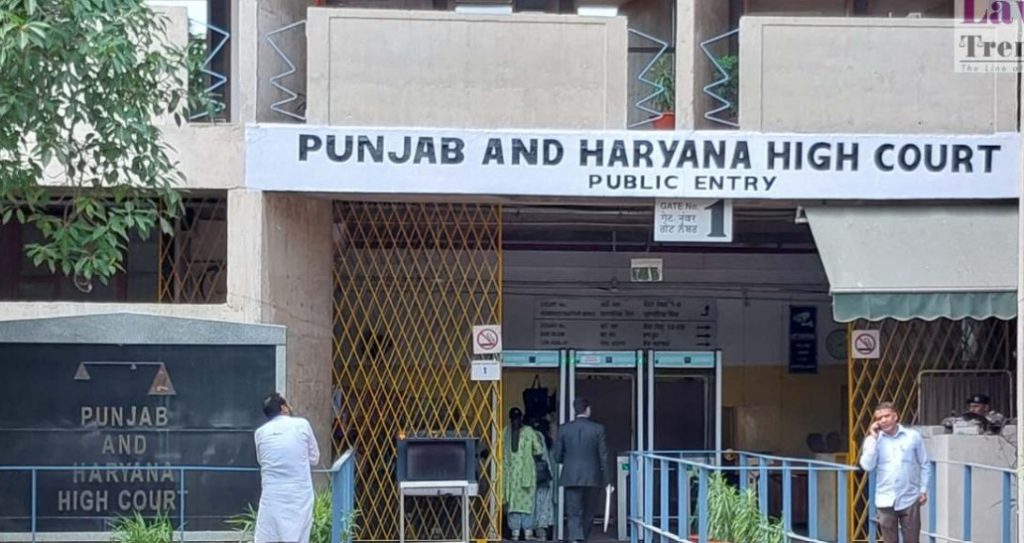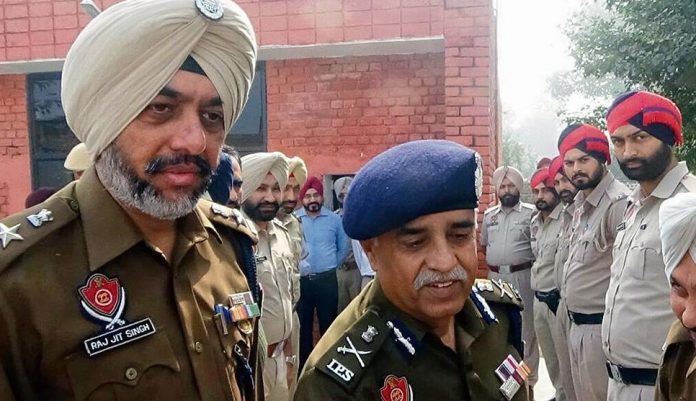In a significant legal development that reverberates through the ranks of the state’s law enforcement, a court in Punjab has recently delivered a crucial blow to a police officer, rejecting the anticipatory bail application filed by a Punjab Police Inspector embroiled in a serious corruption case. This judicial decision immediately places the inspector under the imminent threat of arrest, underscoring the relentless drive towards accountability within the state’s police force and signaling a stern message against malfeasance. The ruling highlights the judiciary’s unwavering commitment to ensuring that no individual, regardless of their position of power, is above the scrutiny of the law.
The concept of anticipatory bail, enshrined under Section 438 of the Code of Criminal Procedure (CrPC), is a pre-arrest legal remedy, allowing an individual to seek bail from a court even before they are formally taken into custody. It is typically sought when a person apprehends arrest on charges that they believe might be false, motivated, or baseless, offering a shield against potential harassment and preserving personal dignity.
However, the granting of anticipatory bail is not an automatic right; it rests entirely within the discretionary powers of the court. The court meticulously weighs several critical factors before arriving at a decision, including the gravity and nature of the alleged offense, the strength of the evidence presented by the prosecution, the likelihood of the accused absconding from justice, the potential for tampering with evidence, influencing witnesses, or obstructing the ongoing investigation, and the accused’s previous criminal record, if any.
In the present case, the Punjab Police Inspector, whose name has not been officially released given the ongoing investigation, found himself at the center of grave accusations. While specific details remain under wraps due to the sensitive nature of the probe, sources familiar with the matter indicate that the allegations against the inspector pertain to a bribery and extortion scheme. It is understood that the core accusation involves the inspector allegedly demanding and accepting illicit gratification to either dilute the charges in a sensitive drug-related case or to prevent the registration of an FIR against certain individuals.
Such an allegation, linking a law enforcement officer to corruption within the critical domain of drug trafficking, is particularly severe in Punjab, a state that has been relentlessly battling the scourge of narcotics. The complaint, which formed the basis of the investigation, was reportedly lodged by a victim or a vigilant whistle blower, directly exposing the alleged misconduct. The probe itself is being conducted by the diligent Punjab Vigilance Bureau, a specialized agency tasked with rooting out corruption within the state administration, including its police force. The charges against the inspector are believed to fall under various sections of the Prevention of Corruption Act, along with relevant sections of the Indian Penal Code pertaining to extortion and criminal conspiracy.

Following the initial investigation and the registration of an FIR, the inspector, apprehending imminent arrest, moved an application for anticipatory bail before the appropriate court, likely a Sessions Court in Ludhiana or a neighboring district. His legal counsel would have argued vociferously, presenting a case emphasizing the inspector’s clean service record, asserting that he was being falsely implicated in a politically motivated or vengeful complaint, and assuring the court of his full cooperation with the investigation. It would have been contended that his custodial interrogation was unnecessary as all relevant documents could be accessed without his arrest, and that he posed no flight risk.
However, the prosecution, represented by the Vigilance Bureau, would have countered these arguments with equal vigor. Their submission to the court would have meticulously detailed the gravity and seriousness of the alleged offense, presenting compelling prima facie evidence, potentially including call records, financial transaction details, or eyewitness accounts, that strongly indicated the inspector’s involvement. The prosecution would have emphasized the critical need for the inspector’s custodial interrogation to unearth the full scope of the alleged conspiracy, identify any other individuals involved, and recover any illicit gains. Furthermore, they would have highlighted the significant risk of the inspector, given his position and influence within the police department, attempting to tamper with crucial official records or influence witnesses if he remained at large. The need to send a clear message that corruption within the force would not be tolerated would also have formed part of their arguments.
After hearing both sides at length and meticulously examining the evidence and arguments presented, the court rendered its decisive order, rejecting the anticipatory bail application. The judicial reasoning behind such a rejection typically hinges on several key points. The court would have likely found that there was sufficient prima facie evidence to suggest the inspector’s direct involvement in the alleged corruption. The seriousness and gravity of the offense, particularly given that it involves a law enforcement officer abusing his power for personal enrichment within a sensitive area like drug enforcement, would have weighed heavily.
The court would have also concurred with the prosecution’s contention regarding the potential for the accused to tamper with crucial evidence, which could include official case files, internal communication logs, or financial records. Moreover, the inherent power and influence associated with the position of an inspector could facilitate the intimidation or influencing of witnesses, thereby jeopardizing the integrity of the investigation. The need for custodial interrogation, to facilitate a thorough and unfettered investigation into the alleged nexus, would have been deemed paramount by the court, recognizing that certain critical pieces of information or evidence can only be extracted through direct questioning in custody.
For the Punjab Police Inspector, the rejection of anticipatory bail carries immediate and profound implications. The threat of arrest looms large, and he will likely be taken into custody by the Vigilance Bureau soon. Upon arrest, it is standard procedure for a police officer facing serious charges to be immediately suspended from duty, a move that effectively puts his career in jeopardy. The legal battle ahead will be arduous, involving subsequent applications for regular bail after his arrest, and a protracted trial process that could ultimately determine his fate and reputation.
More broadly, this judicial decision holds significant implications for the Punjab Police force and the state’s ongoing fight against corruption. It unequivocally reinforces the commitment to accountability within the police ranks, sending a strong message that corrupt elements will be identified and acted against, regardless of their position or seniority. This can, in turn, contribute to boosting public trust in law enforcement, demonstrating that the system is willing to clean its own house.
While acknowledging that instances of corruption are a persistent challenge in any large organization, such decisive actions serve to deter others and underscore the imperative for continuous police reforms and internal vigilance. The current AAP government in Punjab came to power on an explicit anti-corruption plank, and the arrest of one of its own MLAs (Raman Arora, as in the previous prompt) followed by this rejection of bail for a police officer, underscores a stated commitment to a “no one will be spared” policy. The judicial rejection of this inspector’s anticipatory bail application is therefore a significant step forward in Punjab’s complex and ongoing battle against corruption, signaling a victory for transparency and the relentless pursuit of justice.


